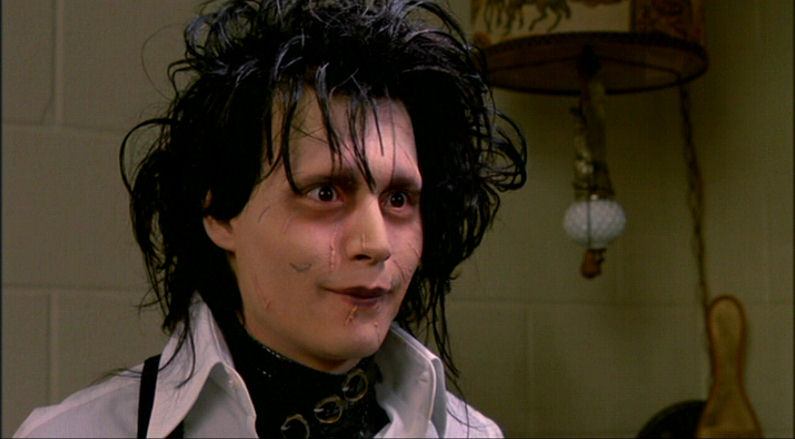#96--Edward Scissorhands (1990)
Edward is such a nice, caring, thoughtful
boy. So gentle, so talented. And so, so lonely.
Well, the answer to this is clear, right?
All it takes is for one caring person to reach out her hand and grant Edward a
place in a normal, caring family. Then
everything will be okay, right?
Well, this is movie, so we know not everything
will be okay. There has to be drama,
tension, opposition. Something has to go
wrong. But does everything have to go
wrong? Is Edward destined to loneliness
forever?
Of course he is. It is human nature.
There are two basic moral principles that
all humans are bound to pursue, without exception. First, there is the “high road” symbolized by
the golden rule: “Love your neighbor as yourself.” Peg sees Edward as a neighbor in need of
some very basic love and she offers it to him.
Soon the whole neighborhood is following Peg’s example and Edward seems
to have a new home.
However, this couldn’t last forever, for
the second basic moral principle must reveal itself: “Protect your kith and kin.” No matter how benevolent the attitude toward
Edward, no matter how simple and gentle Edward seemed, in the end he must be
rejected on the basis of his appearance.
For every good intention, for every positive attitude, below is a
measure of fear, for Edward is a monster, a danger. The fear of Edward can be set aside for a
moment or two, but it must come out eventually.
And he will be rejected.
This is the basis of all hatred and
prejudice, this determination to protect.
There is nothing wrong with it in itself, but it always leads to
judgment and wall-building and eventually warring. Thus it is best for Edward to stay in his
castle. It is best for the mentally ill
to remain in their foster care homes. It
is best for the homeless to remain in their camps. It is best for the new immigrants to remain
hidden. Not for the sake of society, but
for their own sakes.
Frankly, normal society is the most
frightening monster of all.


No comments:
Post a Comment